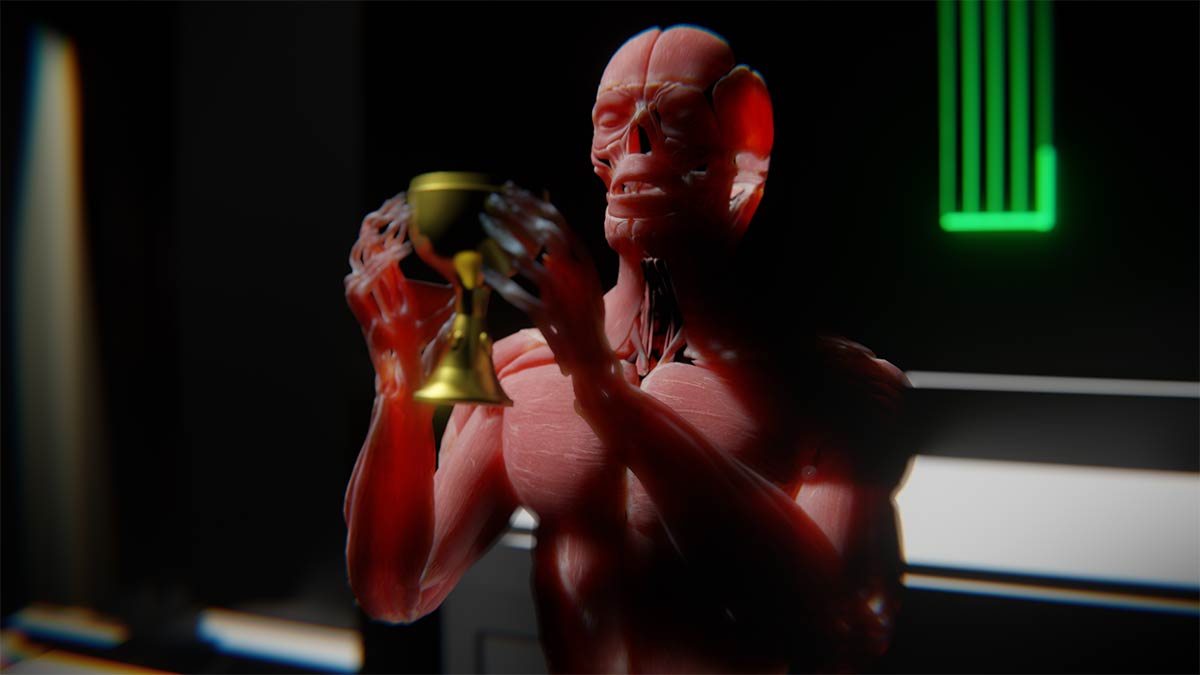Rodney Ascher’s computer-haunted documentary “A Glitch in the Matrix” is not the most insightful recent examination of boredom-born foggy Internet delusions. That honor likely goes to Arthur Jones’ antic “Feels Good Man.” Still, Ascher’s appropriately discombobulating stew of queasiness, comedy, and terror seems well-cued to the subject matter, even while missing a certain editorial sharpness that might have brought some of its notions into greater clarity.
READ MORE: 25 Most Anticipated 2021 Sundance Film Festival Premieres
The conceit here is that our perceived reality is not a physical reality where we haul our fleshy conveyances of bone, skin, and muscle around looking for sustenance, pleasure, and maybe a comfy chair. For the men whom Ascher interviews (and yes, to no surprise, they are pretty much all men), everything we see and feel is just the ones and zeroes of a computer simulation.
READ MORE: The 100 Most Anticipated Films Of 2021
Viewers looking for a hair-splitting Talmudic dissection of “The Matrix” akin to Ascher’s weird and weirdly great “Room 237”—which studied the … interesting individuals who found symbolic importance in every nuance of Stanley Kubrick’s version of “The Shining”—will be disappointed. Keanu Reeves’ 1999 karate-hacker flick remains, of course, as timeless as ever, and certainly receives a close examination here. But Ascher is looking more at the broader phenomenon of people who have literally taken the movie’s proposition that reality is nothing more than a computer simulation. However, they are not unified around thinking that evil A.I. overlords have enslaved humanity.
Ascher approaches his “eyewitness” with the same respectful curiosity as the Kubrick obsessives of “Room 237.” Viewers may come with a more comical approach, given that most of the interviewees are represented by somewhat cheesy CGI avatars. Whether this is to hide their identity or ease their discomfort is unclear. The rickety Zoom connections add an extra dash of technological dissonance to what is already a disconcertingly calm take on a seemingly mad proposition. One non-eyewitness writer references Plato’s cave while philosopher Nick Bostrom—whose 2003 paper “Are We Living in Computer Simulation?” argued essentially for the high likelihood that a “posthuman” civilization is running “simulations of its evolutionary history” (i.e., what we’re inside now)—is dropped into the mix for a more academic, though still not entirely convincing take.
The theories mooted by eyewitnesses about the unreality of reality are mostly based on nothing more than a vague sense that things are not as they seem, combined with a conspiracist’s disinclination to see coincidences as anything but signs of intentionality, not to mention too much time in front of a screen. The men are an extremely online clan (engineers, gamers). Though they throw around terms like “base reality” with abandon, it is hard to ascertain how serious they are.
That is, until some of the ruminations start to border on the kind of sociopathy that leads one writer Ascher speaks with to comment on how “The Matrix,” with its Ubermensch empowerment daydream, can be seen as a straight “school shooter fantasy.” Ascher threads in scenes from “They Live” (another gateway sociopath vision in which other people are actually aliens and deserving of shotgunning) along with the recollections of a “Matrix” obsessive who chillingly recalls the stages of his descent, from stalking the mall in his Neo trenchcoat and then ordering a gun, over what sounds like a phone call from prison.
Ascher is less there to interrogate than listen. In this, he is somewhat like C.D.B. Bryan, the journalist, and skeptic who wrote “Close Encounters of the Fourth Kind” about a convention for alien abductees. Bryan was not an alien hunter but came away thinking that something had traumatized these people, just not aliens. Though Ascher’s style is more dreamy and exploratory than exhaustive, he has a desire to hear more and goes further down the rabbit hole also calls to mind Errol Morris, his fellow spelunker of the odd. Of course, once one gets to the bottom of that hole, it becomes obvious all that’s down there are a few old motherboards, a VHS copy of “The Matrix,” and aching social isolation.
Ultimately, there is not a lot of there there. Ascher structures his spacey expanse of footage—disconnected voices pitching their theories over screens showing film clips (“Avatar,” “Minority Report”), old VR graphics, or computer games like “Minecraft”—intro five subject chapters. Each of those is prefaced with clips from a legendary talk that Philip K. Dick delivered at a 1977 science fiction convention in France. Dick’s talk was later billed as having predicted: “The Matrix” (whose simulation borrowed massively from his books). But these clips show the writer grappling with his shaky mental health and almost religious belief that a vision had shown him the truth behind these “counterfeit worlds,” in an honestly searching manner brings a more soulful aspect to this somewhat cold and techy void of what-ifs.
In the end, Ascher does not try to come to a conclusion, which is maybe as it should be. But this critic feels obliged to weigh in. No, we are (probably) not living in a computer simulation. Of course, if we were, we would probably not be able to tell. Also, if we were, the chances of doing anything about it are likely nil. So, as you were. [B+]
Follow along with all of our coverage of this year’s Sundance Film Festival here.





